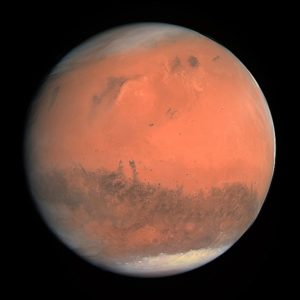No, life has not yet been found on Mars, but imagine waking up to that headline. How would you react? The headline’s font would be huge on print newspapers—maybe one word per page, occupying the first four pages. Some bold papers might even put one letter per page and go so far as to have blank pages for the spaces. The point is, it would be big news.
So I ask again, what would this stir for you?
For me, the swirl would be thick with competing thoughts and feelings, tripping over themselves to get out. First would be the raft of questions stemming from pure curiosity. Is it DNA-based? Is it a separate start, or do we share some ancient microbial ancestor—possibly shuttled from one body to the other following a meteoric impact? What lessons can we learn about how life forms? Can we get the discovered lifeforms to call us Mama or Dada? Will they make good pets?
One can imagine the discovery team, whether at NASA or elsewhere, ecstatic with joy. The entire exploration establishment around the planet would likely be giddy. SETI folks would probably be unable to chew for a while, wearing fixed grins.
I would share many of these same reactions, for the pure joy of discovery and the novel opportunity to re-examine what it means to be a part of life on Earth. But then it dawns on me just how devastating the news might actually be for the human race.
Views: 8389




